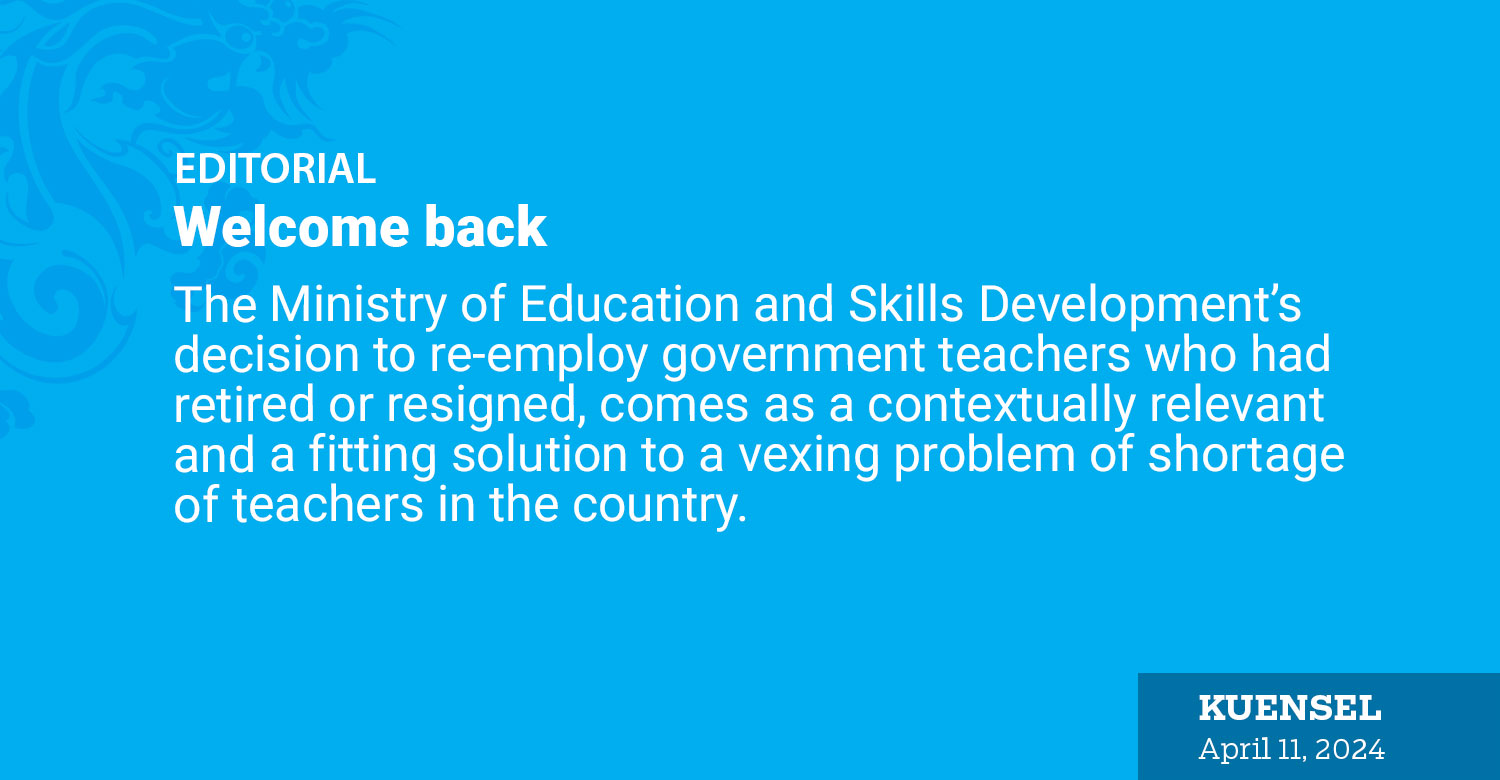The Ministry of Education and Skills Development’s decision to re-employ government teachers who had retired or resigned, comes as a contextually relevant and a fitting solution to a vexing problem of shortage of teachers in the country.
It also presents a new dimension in managing human capital, which elsewhere has been coined as a revolving door approach – where professionals leave, enhance their capacity, expertise, and experience, and come back to further contributions.
It is a common knowledge that in spite of the various attempts to curtail it, the teacher attrition had been persisting, where, according to administrative data, about 83 government teachers voluntarily resigned per month.
In sum, more than 531 government teachers left the profession within the first five months of 2023, which started as 355 government teachers leaving the job five years ago in 2018.
The impact of the persistent teacher attrition had been manifold, however, the most stark and far-reaching being schoolchildren left without teachers. In that, however, the schoolchildren’s views on the issue is yet to be jotted down.
Of what is known, however, schools in Bhutan were in need of over 600 teachers, and the education and skills development ministry, had been weighing in on available sources of teachers. Given the urgency of the matter, the option to recruit those teachers who had left, for various reasons, seem most plausible in order to ensure continuity of quality education for Bhutanese children.
Already practiced elsewhere, teachers, lecturers, and professors continue to carry out their role beyond the traditional retirement age, given their depth of knowledge in the subject or field, the passion for teaching, and for the joy of being around the learners.
Transformative pedagogy has been a guardrail in the education reform that reverberates across the sector. Indeed, it must be interesting for children to learn about electricity from a plier and tester – carrying electrician by profession.
In what might be another alternative, outsourcing specific subject matters to professionals of the field – such as practicing lawyers, doctors, engineers, IT technicians, environmentalists and such experts – could provide children with hands-on learning, a pedagogy that fits the changing time and context.
Whether Saturday is on or off is irrelevant at the moment for the parents of schoolchildren. The concern is more on the classroom delivery, and the learning outcomes of their children.
In urban centres, parents of schoolchildren have the option to hire services of private tutors, whereas in the remote communities, parents have a painful choice to make – send their very young children away to boarding schools far away from them, or keep them close by in the school of their community that does not have teachers or the resources.


